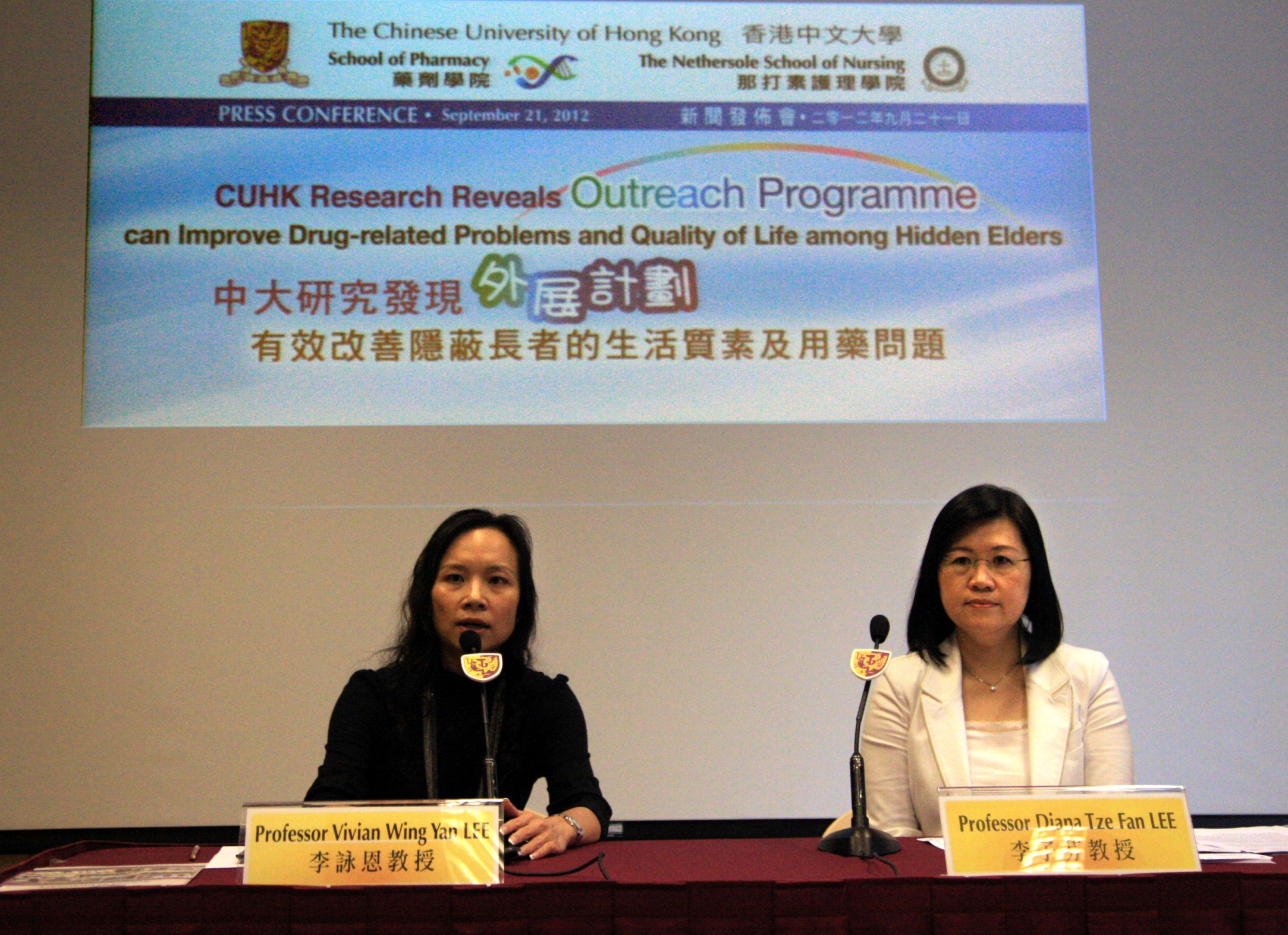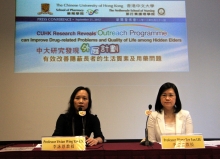CUHK
News Centre
CUHK Research Reveals Outreach Programme can Ease Drug-related Problems and Improve Quality of Life among Hidden Elders
With advancement of technology and medical services, life expectancy is getting longer in Hong Kong. The estimated number of elderly who live alone or with spouse only in Hong Kong is 422,330, accounted for 37% of the older population. Hidden elders are the most vulnerable and prone to health risks since they lack family support, normal social life and network, and access to the existing network of community support. The School of Pharmacy and The Nethersole School of Nursing at The Chinese University of Hong Kong (CUHK) conducted a study in the Wong Tai Sin district from September 2009 to February 2012 to investigate the health needs of hidden elders. The study reveals that outreach programme can ease drug-related problems and improve quality of life among the hidden elders.
Eighty-six senior citizens (the mean age is 81.46) were studied and followed by outreach teams comprising social workers, nurses and pharmacists. Social workers helped to identify and recruit hidden elders; nurses focused on dietary education, home injury prevention and relaxation therapy; while the pharmacists focused on drug-related issues. The study revealed that on average every subject suffered from 3.29 kinds of chronic disease and the average number of chronic medications each subject took was 6.36. The most commonly observed chronic diseases were hypertension, cardiac problem, diabetes, hyperlipidemia and arthritis. Pharmacists conducted on average 4.5 interventions per subject. Drug non-adherence and storage problems were found in 61.63% and 69.77% of the subjects. Factors related to drug non-adherence are (1) female subjects; (2) taking more than 9 concurrent medications; (3) arthritis patients and (4) drug storage problems.
CUHK discovered that interventions by pharmacists and nurses helped ease drug-related problems, enhance drug compliance and quality of life among hidden elders. The average EuroQoL (quality of life index) score of the subjects increased by 1.05 to 7.77. Among the five dimensions of quality of life assessment, walking ability and pain control increased by 0.36 and 0.38 to 1.66 and 1.27 respectively. The average Morisky score decreased by 0.61 to 0.54, indicating improvement in medication adherence.
CUHK recommends the government to allocate resources in setting up outreach teams to help hidden elders in the community, especially on their health needs and drug-related problems.



